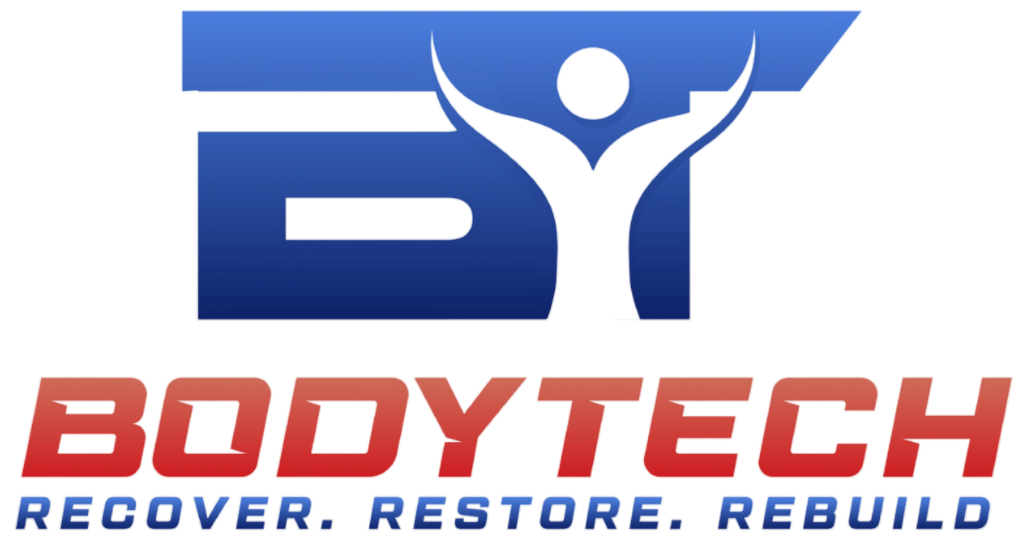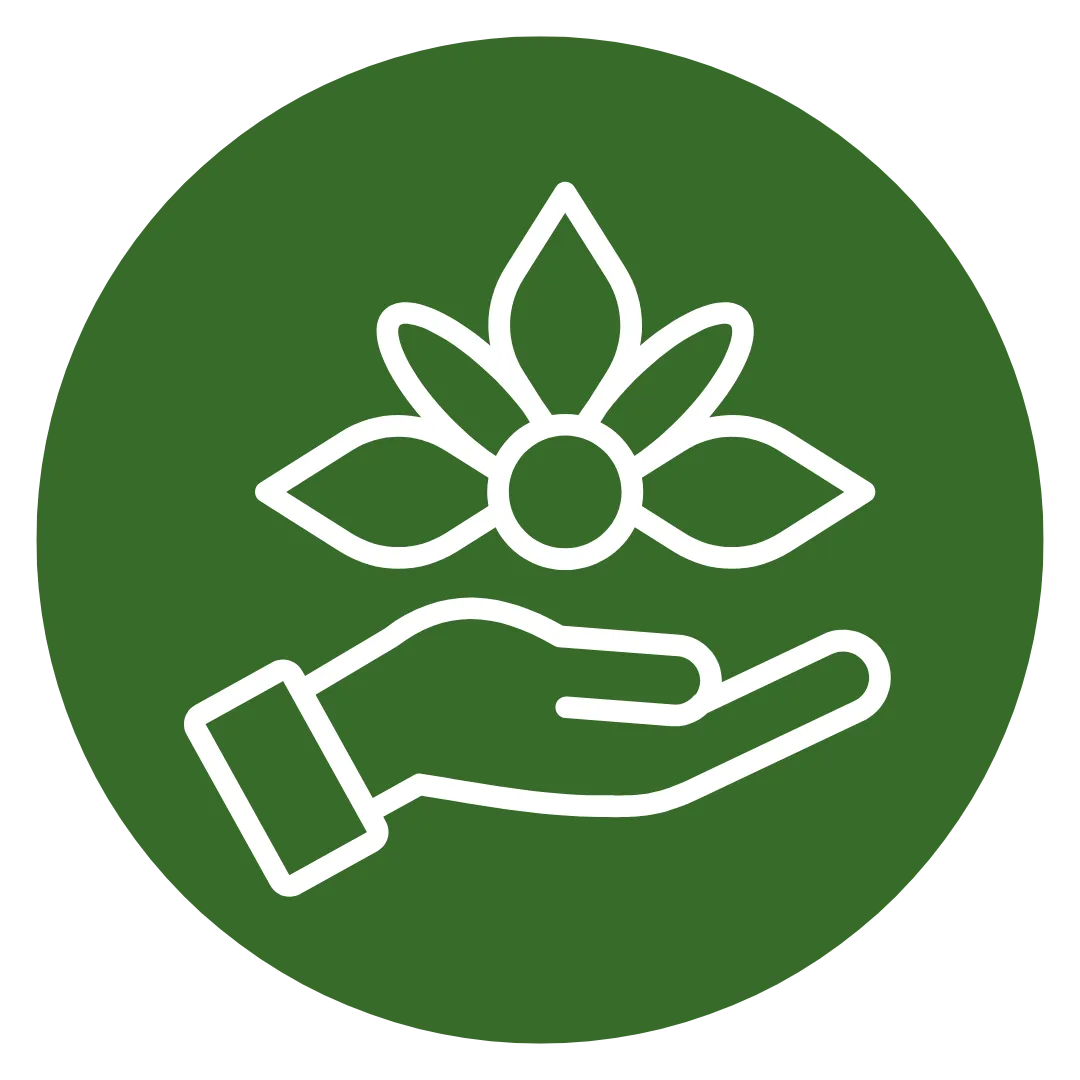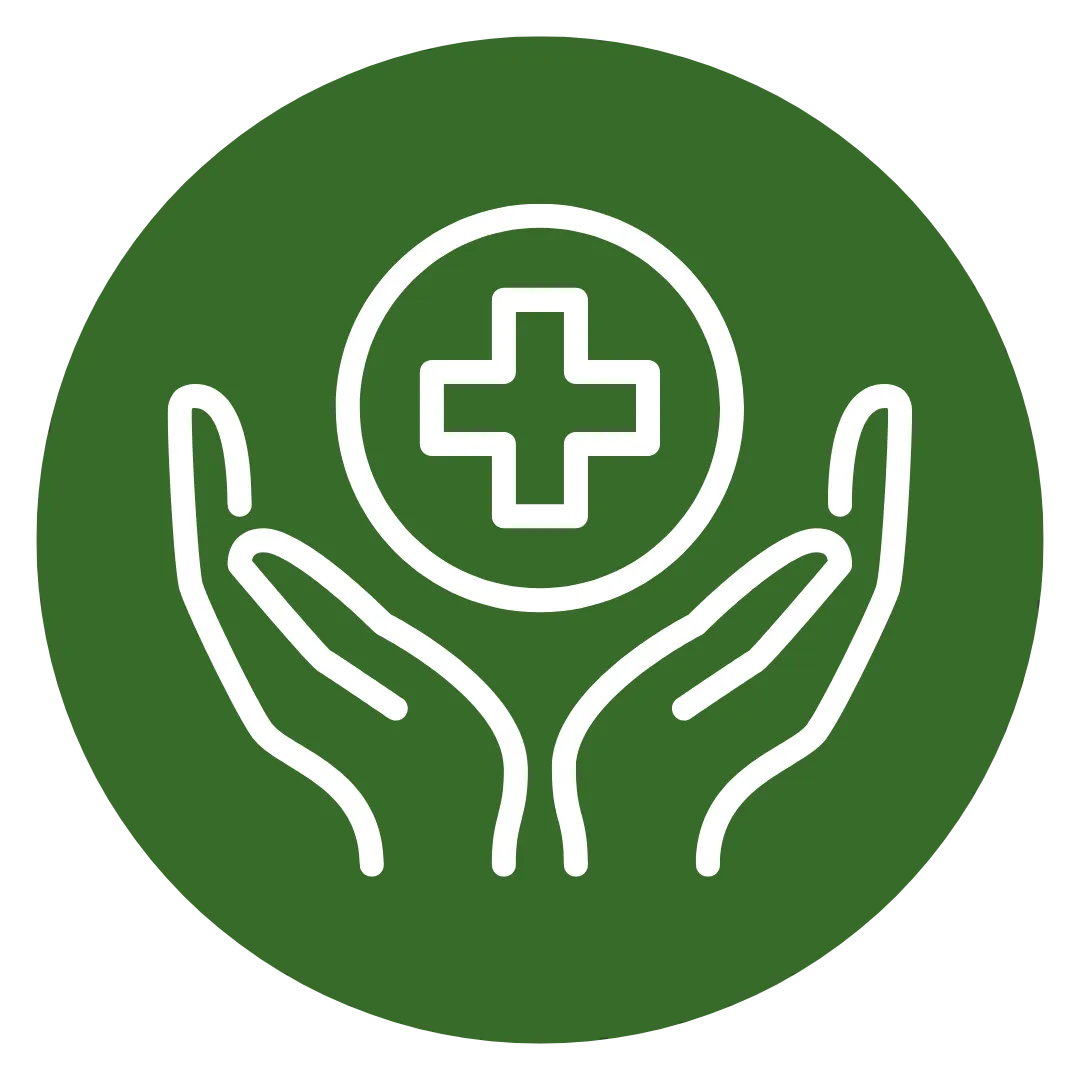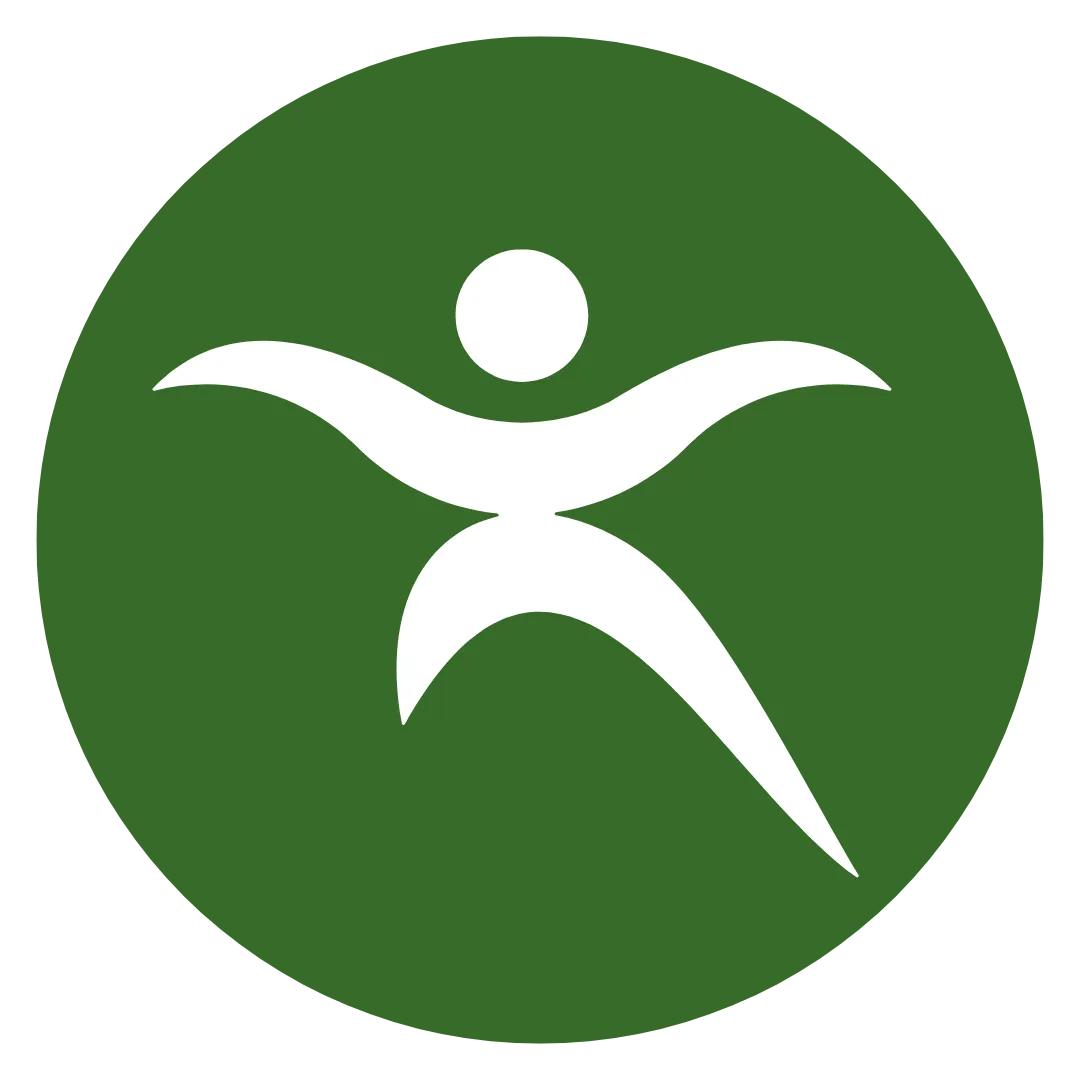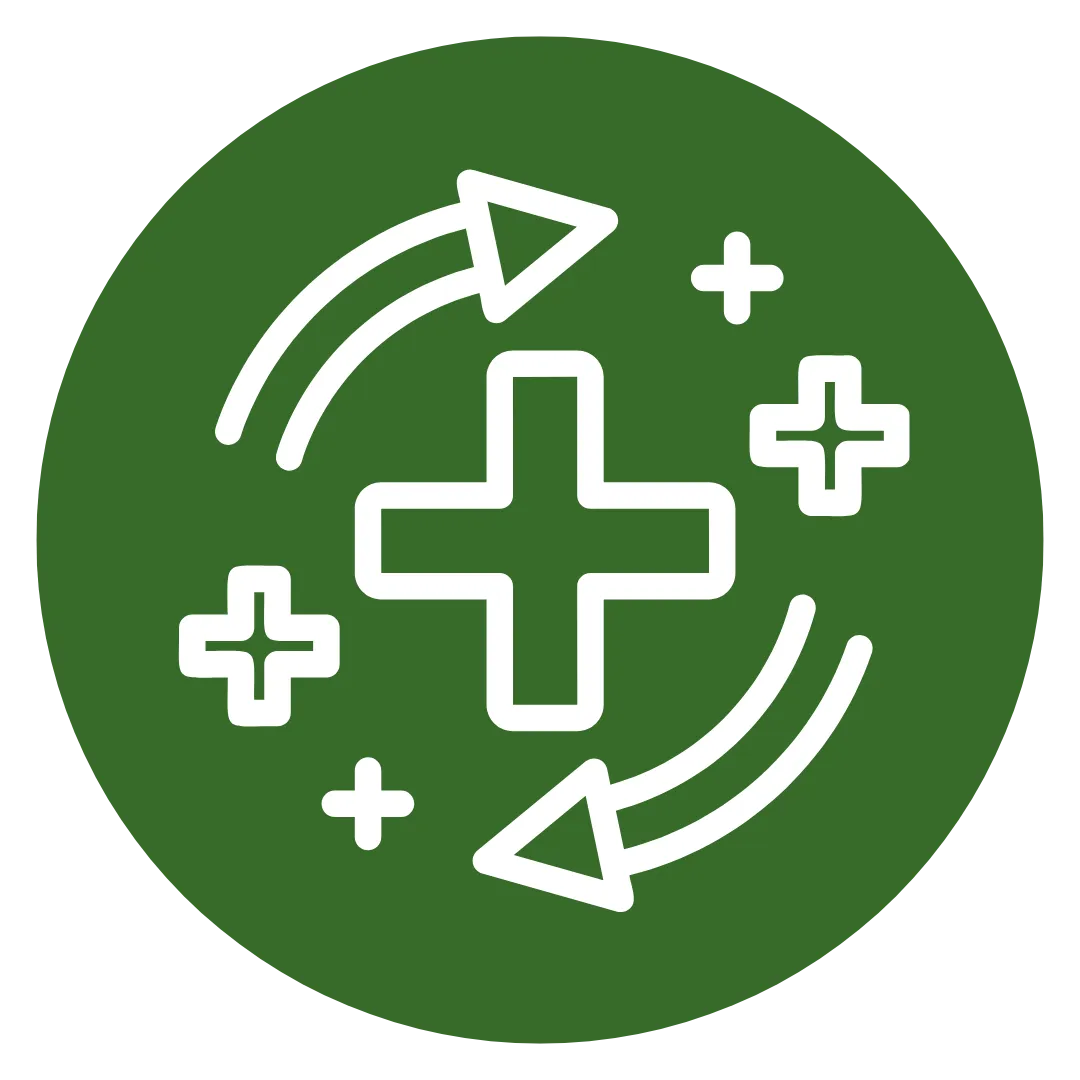RECOVERY. REDEFINED.
MOVEMENT IS MEDICINE.
HEALING STARTS HERE.
BodyTech is built for people who refuse to let pain define them. We make the connection between science, movement, and recovery — and turn it into real results.
About Us
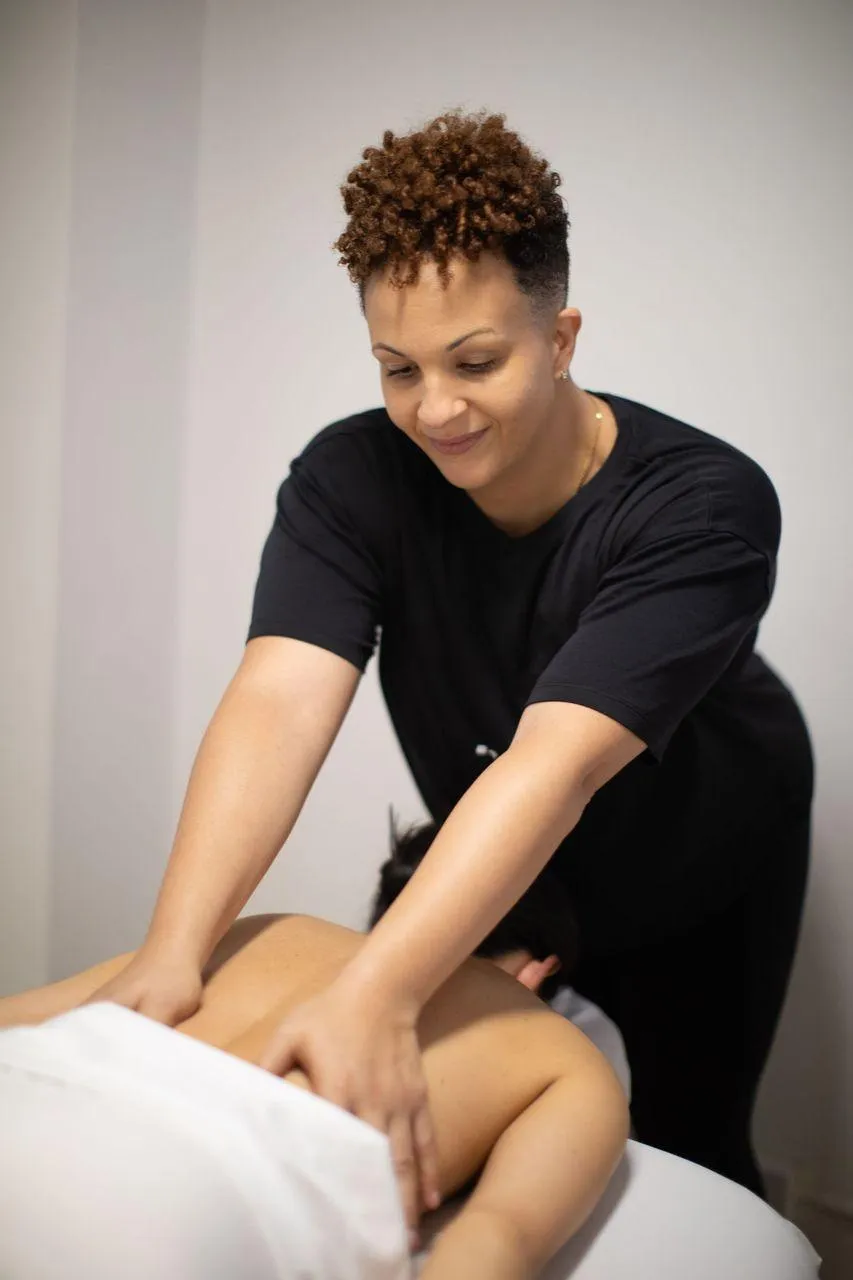

Built for Healing.
Backed by Purpose.
About BodyTech
Built for Healing.
Backed by Purpose.
At BodyTech, recovery isn’t just what we do — it’s who we are.
BodyTech was created to transform the way people experience healing: through movement, intention, and a deep understanding of the human body’s power to rebuild.
Whether you’re navigating post-surgical recovery, chronic pain, or performance plateaus, BodyTech provides the strategies, tools, and support to help you move forward with strength and purpose.
Our Services
Your Recovery, Your Way.
featuring
THE PAIN PLAYBOOK
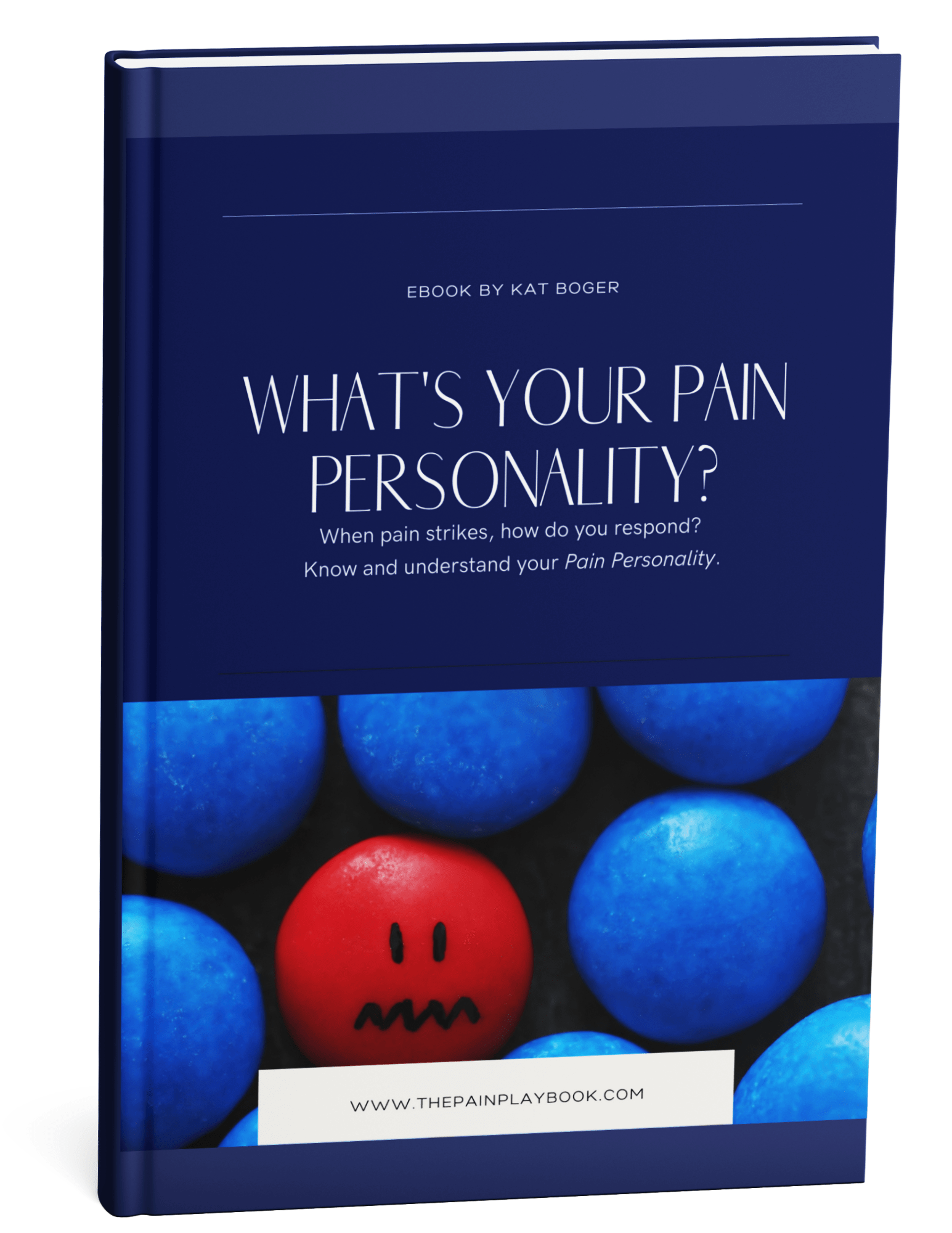
Because Healing Isn’t Just Physical. It’s Personal.
The Pain Playbook is the education hub powered by BodyTech where we turn science and experience into self-management strategies you can use. From stress and pain to hormonal health and recovery hacks, we explore the why behind the work and how to reclaim control over your healing journey.
WHY BODYTECH?
Experience You Can Feel. Expertise You Can Trust.
Recovery built around you, not just your diagnosis.
Movement-based solutions rooted in science and experience.
Coaching that empowers you to self-manage, not just survive.
A team that treats you like a person, not a protocol.
Real Stories. Real Recovery.
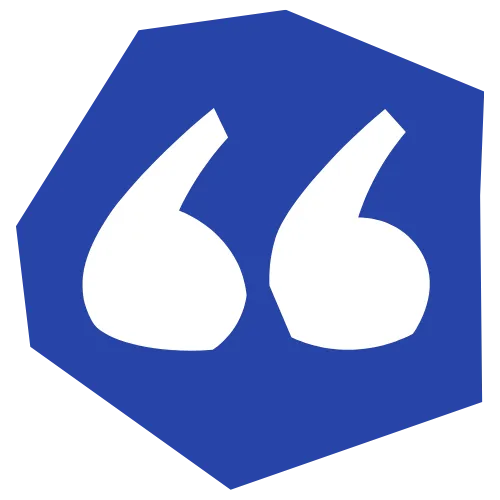
Alex C.
trainer with hip pain & discomfort)
Alex C.
trainer with hip pain & discomfort)

Kat is a magician! It took her literally one minute to figure out what was causing my problems and I walked out pain free after one session!

Theresa P.,
client with lymphadema
Theresa P.,
client with lymphadema

Kat is a wonderful caring professional therapist.

Rob F.
Rob F.

Kat is amazing and, hands down the best in the business.

Clea M.
Clea M.

Pedro has been an incredible trainer with an impressive depth of knowledge and experience. At 55, I’m stronger than ever and excited to see what I can accomplish. With Pedro showing me, I can exceed my own expectations.

Stephanie W.
Stephanie W.

In the time that I’ve been training with Pedro, I’ve become stronger and fitter.”

Peter G.,
marathon runner
Peter G.,
marathon runner

I think I have a pretty low tolerance to pain, but Kat does a great job of getting deep into my muscles without causing a lot of pain."
Browse Our Articles
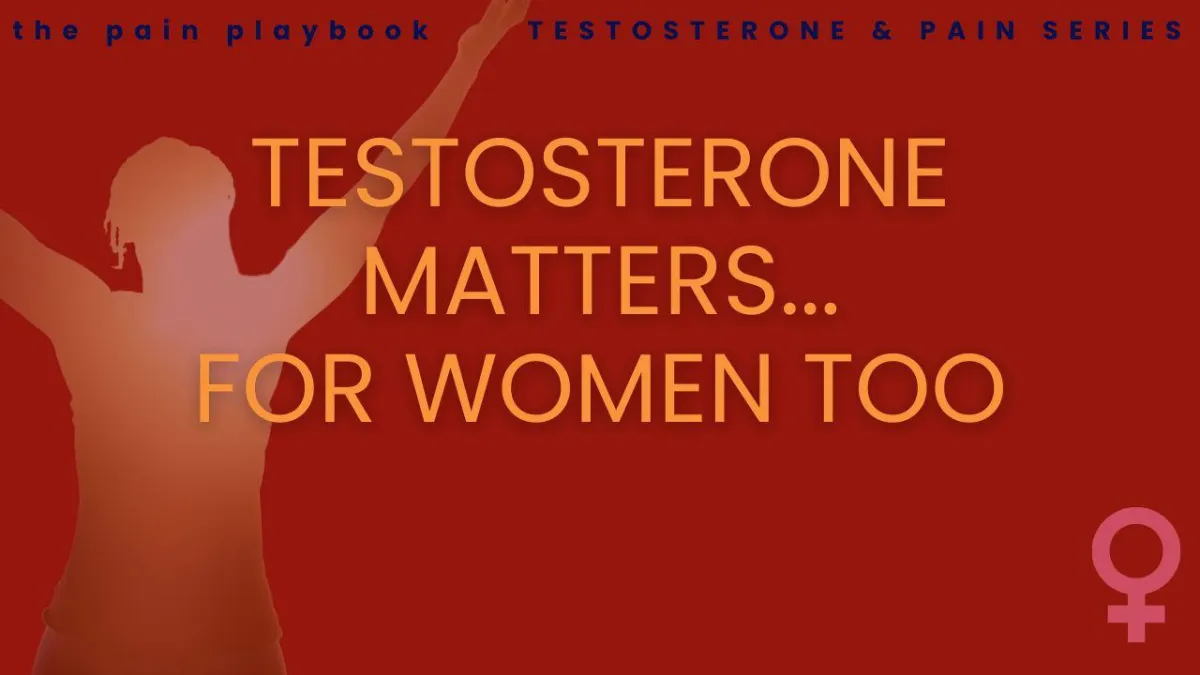
Testosterone and Women
Not Just a Men’s Issue:
How Low Testosterone Affects Women
When you hear “testosterone,” your brain probably goes straight to men.
But here’s the truth: women produce it too, and they need it to function well. Just in smaller amounts.
Hormones like estrogen, progesterone, testosterone, DHEA, and cortisol all work together to regulate energy, mood, metabolism, recovery, and how your body handles stress. Together, they create your baseline vitality—that natural state where you feel strong, steady, and able to respond to daily life without crashing.
As we age, that hormone balance starts to shift. This shift can happen sometimes gradually, sometimes dramatically. Stress, perimenopause, birth control, and other health factors can speed up the drop in testosterone, leaving the body with less of the fuel it needs to maintain strength, recovery, and emotional stability.
When testosterone drops too low, the entire system can feel off-balance. You may not feel “sick,” but you don’t feel like yourself either.
That can look like:
Energy that fades by midday
Workouts that don’t hit like they used to
Mood swings or irritability
Lower libido
Pain that lingers longer than it should
Most women don’t realize testosterone is part of that foundation…until it’s missing.
The Basics: Testosterone 101 (Yes, Even for Women)
Testosterone is often labeled the “male hormone,” but it plays a critical role in women’s health too. It’s produced in the ovaries, adrenal glands, and in small amounts by peripheral tissues. Though women have far less of it than men, it’s still essential for:
Muscle and bone strength
Mood regulation and emotional resilience
Libido and sexual function
Cognitive clarity and motivation
Tissue repair and pain perception
Most of it circulates in bound form, but it’s the free testosterone (the active kind) that does the heavy lifting. And because levels are already low in women to begin with, even a slight drop can make a big difference.
Levels can drop due to:
Hormonal birth control
Perimenopause and menopause
Chronic stress
Overtraining or under-fueling
These changes are often overlooked or written off as “just getting older,” burnout, or emotional stress when, in reality, hormone shifts could be playing a central role.
Where Do You Even Find Testosterone?
Testosterone is produced in three key places in a woman’s body:
· Ovaries (until menopause or surgical removal)
· Adrenal glands (especially under stress)
· Peripheral tissues (where other hormones convert to small amounts of T)
That’s why it’s so sensitive to aging, stress, overtraining, and birth control, all of which can suppress production or block receptor function.
What Low T Looks Like in Women
Low testosterone isn’t always obvious and it’s worth a deeper look. Common signs include:
Decreased motivation and drive
Increased muscle soreness after workouts
Drop in strength and performance
Poor sleep and higher stress
Chronic pain, especially joint or muscle-related
Lower libido and emotional burnout
These symptoms can creep in subtly or show up all at once, leaving many women feeling confused, frustrated, or dismissed. Because testosterone isn’t routinely tested in most women, it’s easy to miss. You might hear, “Your labs are normal,” even when your body is clearly telling you something isn’t right.
Low testosterone in women can mimic or compound other hormone issues like low estrogen, high cortisol, or thyroid imbalances. That’s why it’s crucial to look at the whole picture and sometimes go beyond numbers.
The Testing Gap
Many women aren’t tested for testosterone, even when symptoms line up. And when levels are tested, the “normal” ranges often don’t reflect optimal function.
For a moment, let’s look at this frustrating phrase women hear far too often: “Your numbers are normal.”
The “normal range” on hormone panels is incredibly broad and often based on outdated data that doesn’t account for age, stress, or quality of life. Just because you’re technically within the range doesn’t mean your levels are optimal. You might be sitting at the very bottom of that range and still struggling with fatigue, pain, and low motivation. And still be told everything looks fine.
That’s why BodyTech encourages clients to dig deeper, track symptoms, and explore options beyond standard lab cutoffs. And why it’s important to work with hormone-informed providers who look beyond the numbers.
How to Boost T Naturally
While testosterone therapy (TRT/HRT) is one option, it’s not the only one. You can start supporting healthy levels by:
· Lifting weights – Resistance training helps stimulate natural production
· Improving sleep – Deep, consistent sleep supports hormone recovery
· Eating more protein and healthy fats – Nutrients like zinc, D3, and cholesterol are needed for hormone synthesis
· Lowering stress – High cortisol can suppress T levels fast
· Ditching chronic cardio – Overtraining can backfire on hormone health
And if levels are still low, working with a hormone-literate practitioner can help explore HRT, bioidentical options*, or testosterone cream. Especially for women in perimenopause or postmenopause.
* Quick Note: What Are Bioidentical Hormones?
Bioidentical hormones are custom-compounded to match the exact structure of the hormones your body naturally produces. That makes them easier for your body to recognize and use, often with fewer side effects than traditional hormone therapy.
They can be prescribed as creams, gels, pellets, or capsules, and are especially helpful for women navigating perimenopause or recovering from hormonal imbalances.
Ask your provider about bioidentical hormone therapy (BHRT) if you’re looking for a more personalized, hormone-informed option.
How BodyTech Can Help
At BodyTech, we understand that hormones shape how you heal, move, and feel. We don’t just treat symptoms. We listen to your body’s patterns.
Whether you’re lifting through fatigue, navigating pain that won’t budge, or feeling like your progress has stalled, our approach meets you where you are:
· Hormone-informed coaching that respects your physiology
· Mobility and strength programs that rebuild energy, not deplete it
· Recovery strategies to support your nervous system and reduce inflammation
This isn’t about pushing harder. It’s about moving smarter with the right support. Because when your body is fighting for balance, you shouldn’t have to do it alone.
---
Next Up: In Part 3, we’ll talk about how testosterone helps rebuild tissue, reduce inflammation, and support your healing timeline after injury.
---
References:
1. Davis, S. R., et al. (2005). Testosterone and estradiol in women: effects on mood, wellbeing, and pain. Journal of Women’s Health. https://doi.org/10.1089/jwh.2005.14.104
2. Zimmerman, Y., et al. (2014). The impact of hormonal contraceptives on testosterone levels. Human Reproduction Update. https://doi.org/10.1093/humupd/dmt038
Ready to Move Forward?
Whether you’re recovering from surgery, managing pain, or ready to redefine how you move through life, we’re here for it. Recovery starts with the first step. Let’s take it together.
